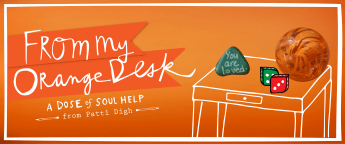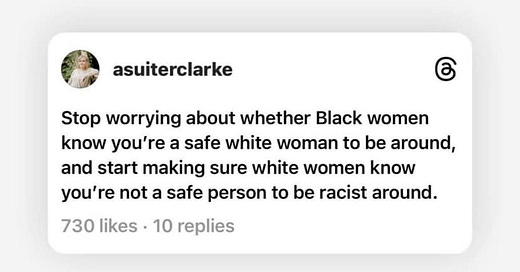I’m not here to tell you as a white woman to wear or not wear a blue bracelet to let Black people know you are a “safe” person and that you’re on the “right” side of history, even though over half of your ilk chose to reelect Donald Trump.
It is easy to dismiss blue bracelets or safety pins or pink pussy hats—whatever symbol primarily white people want …
Keep reading with a 7-day free trial
Subscribe to From My Orange Desk to keep reading this post and get 7 days of free access to the full post archives.





